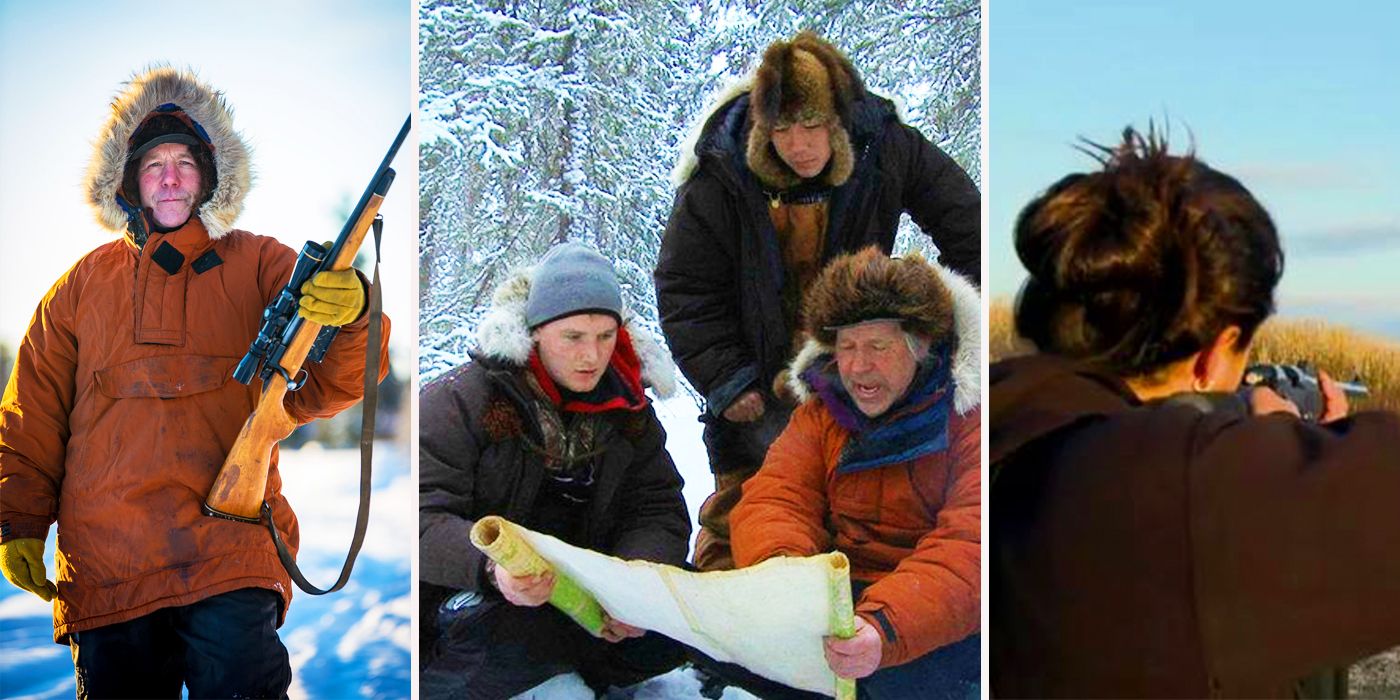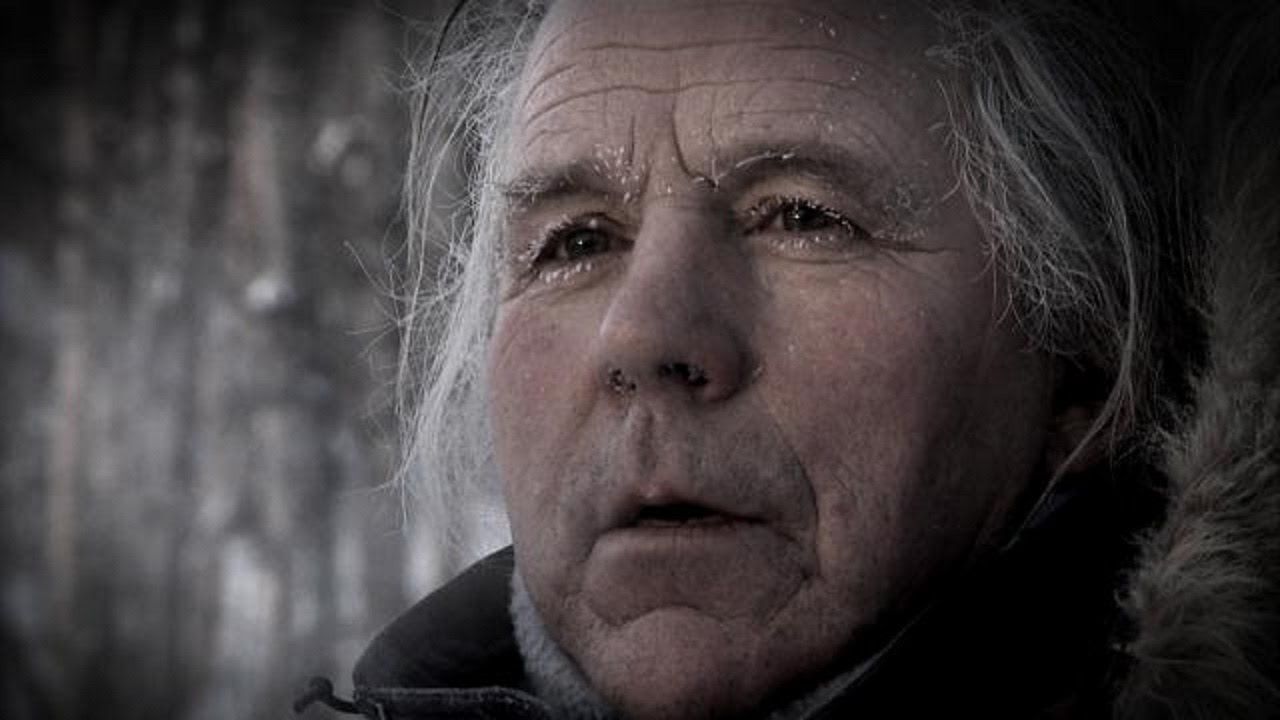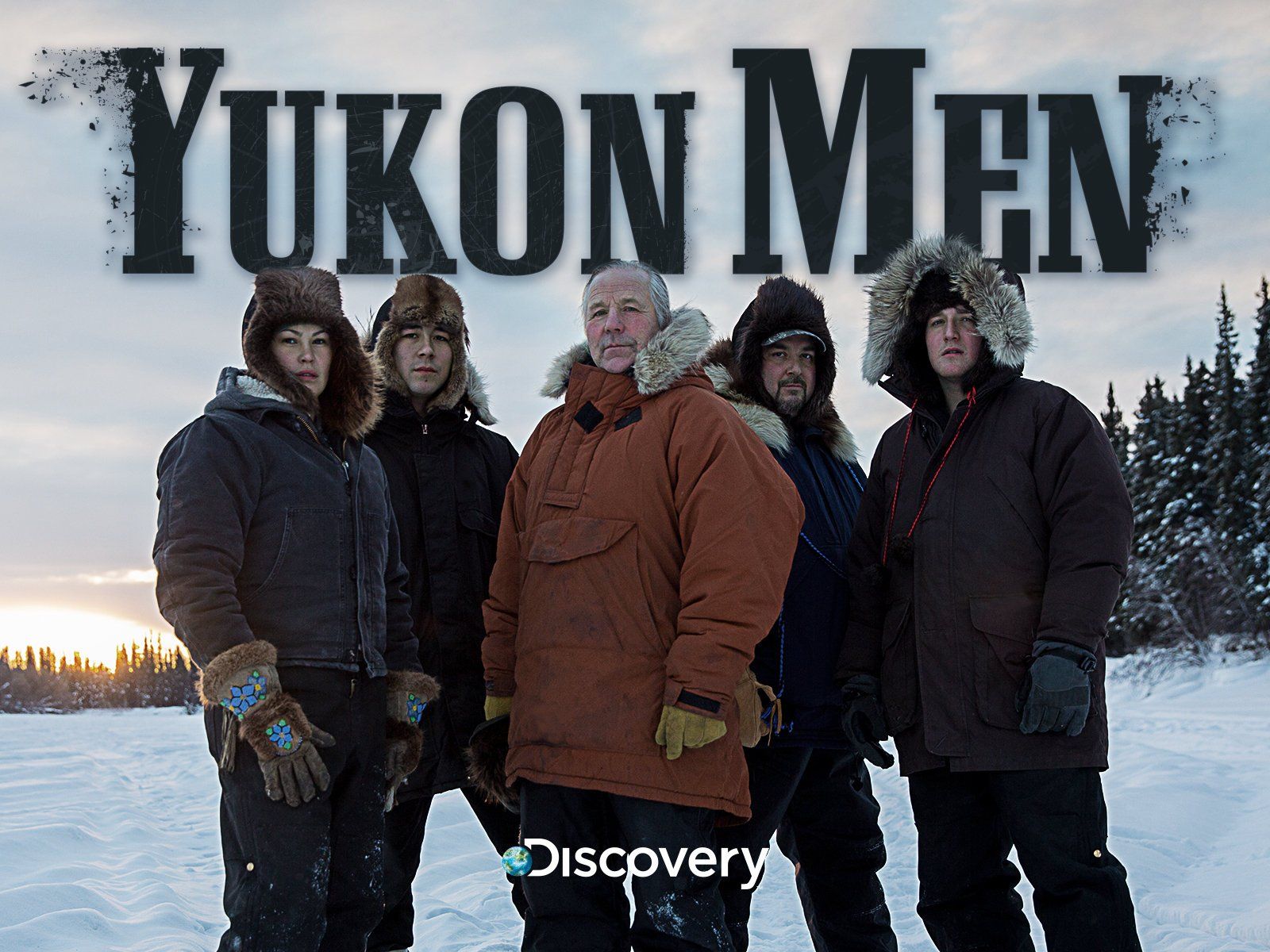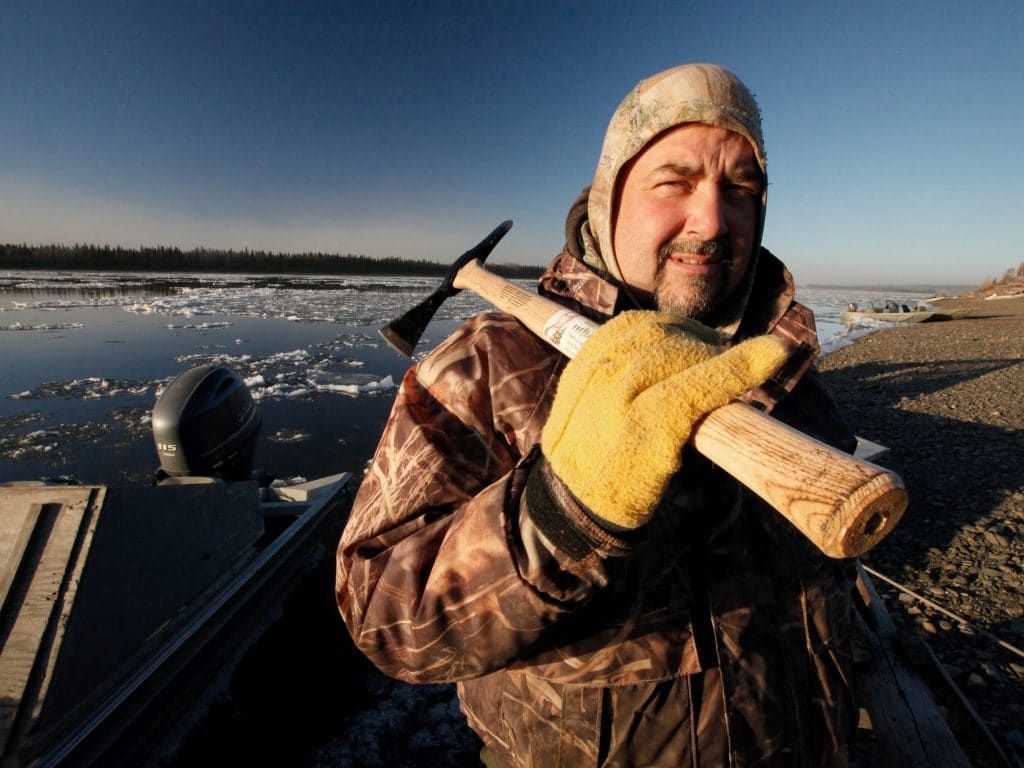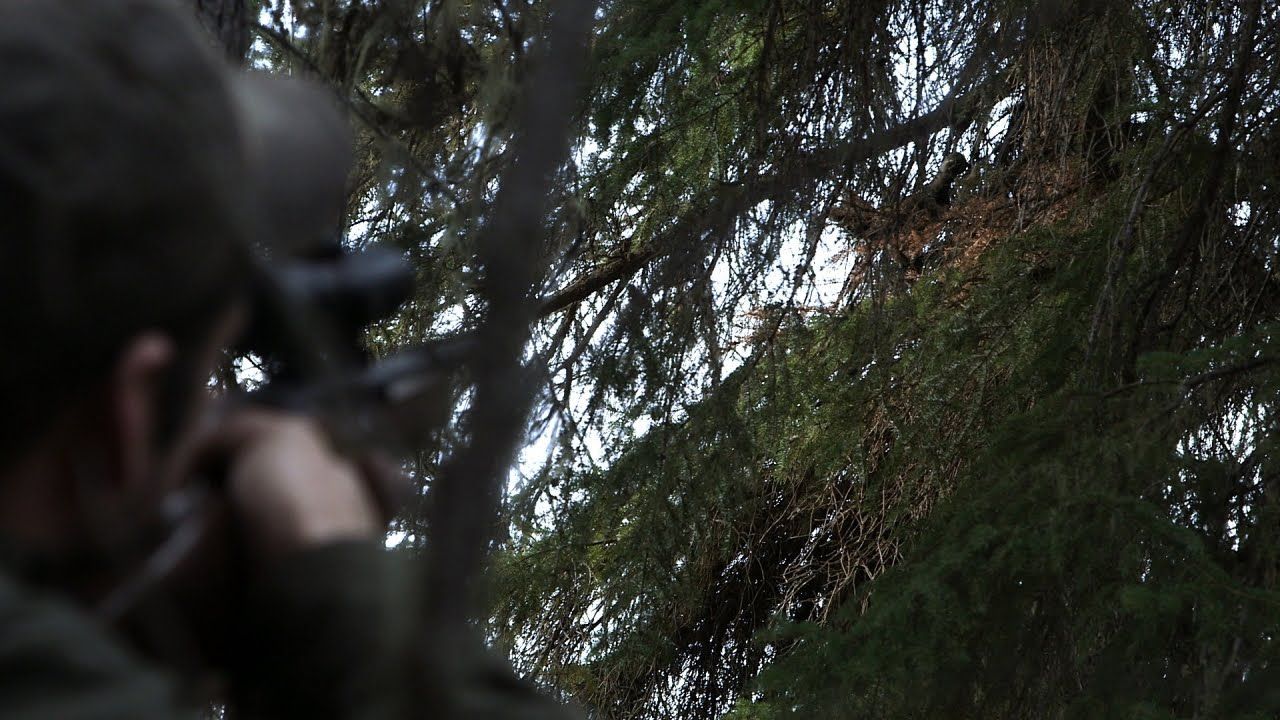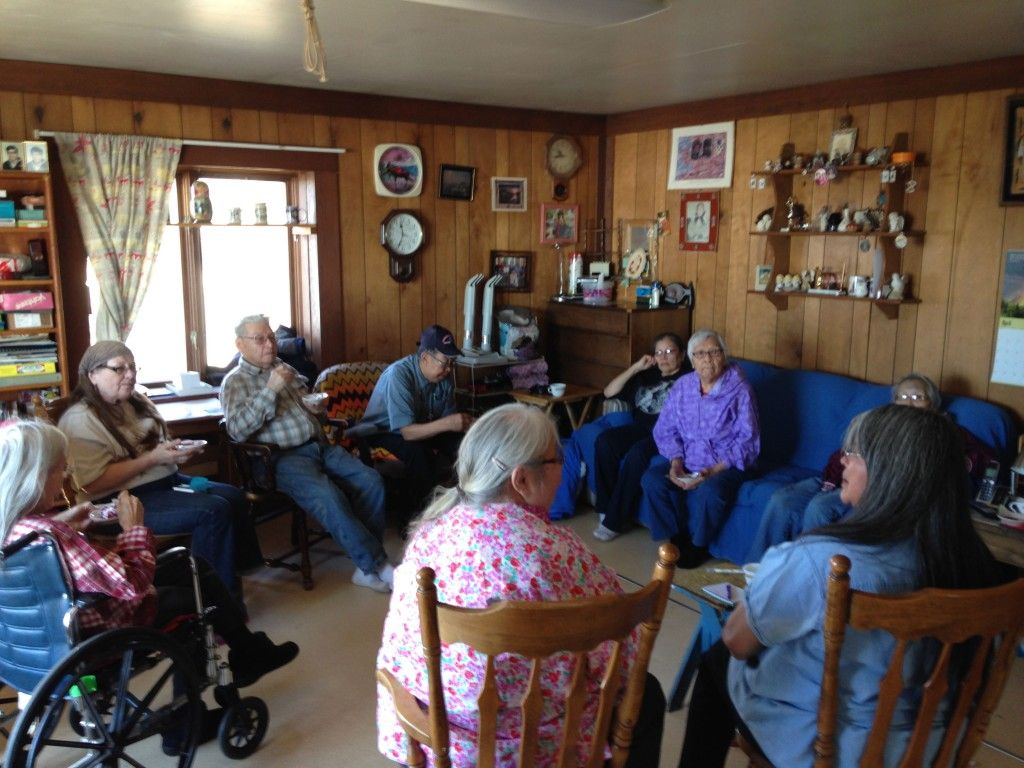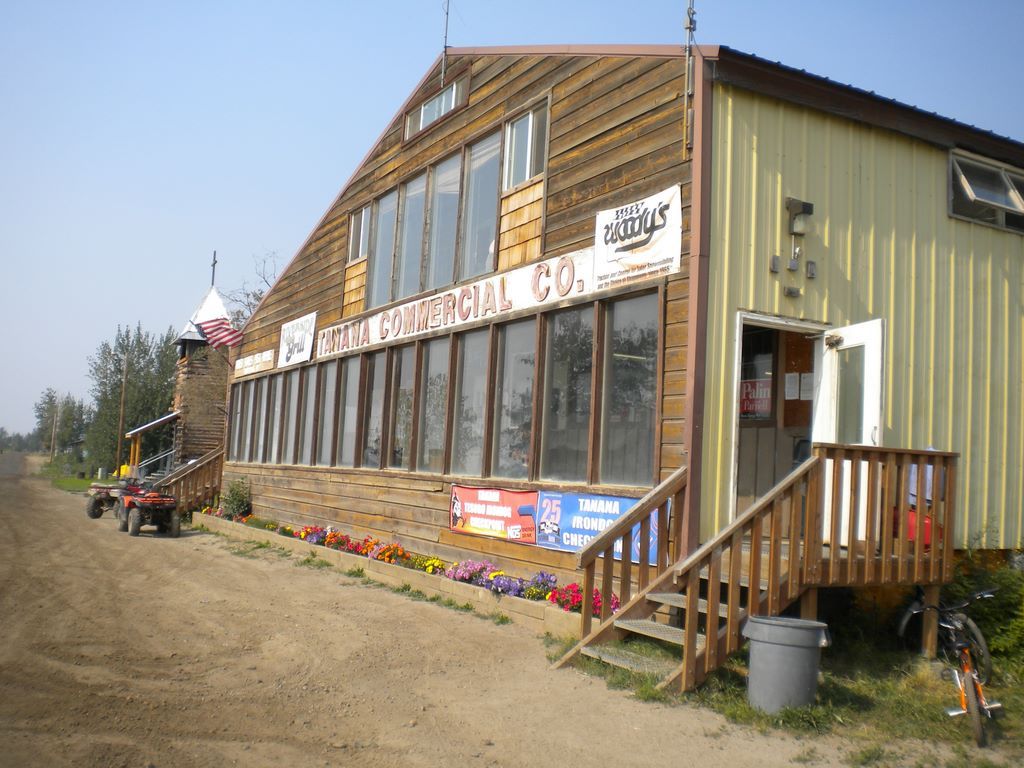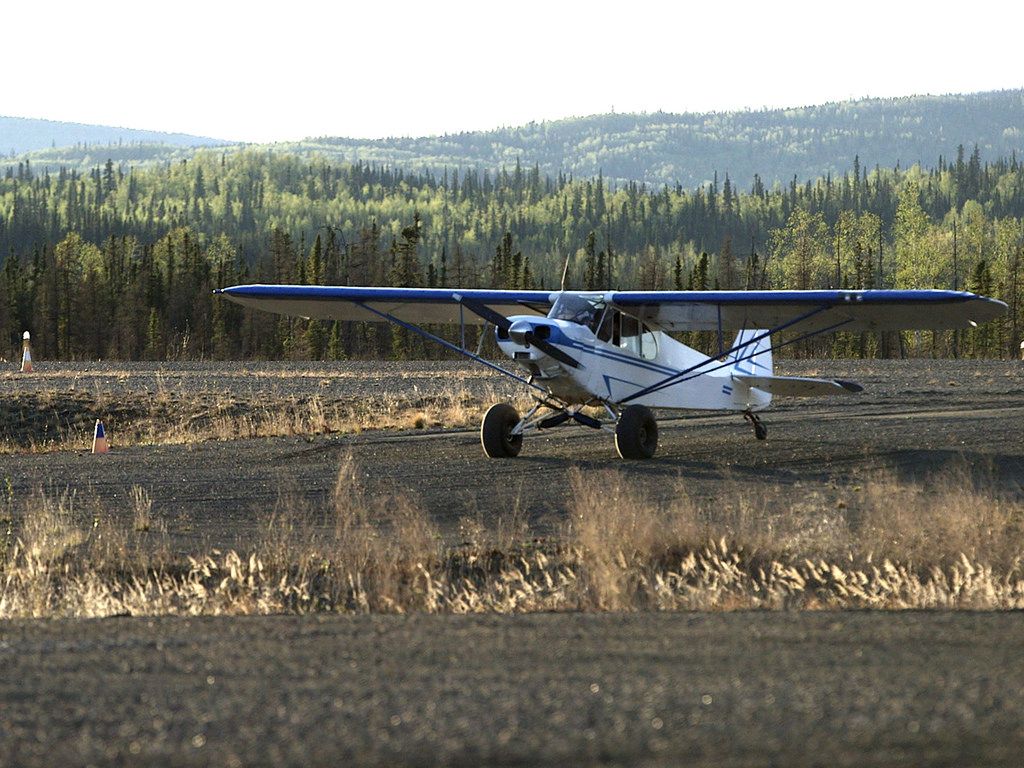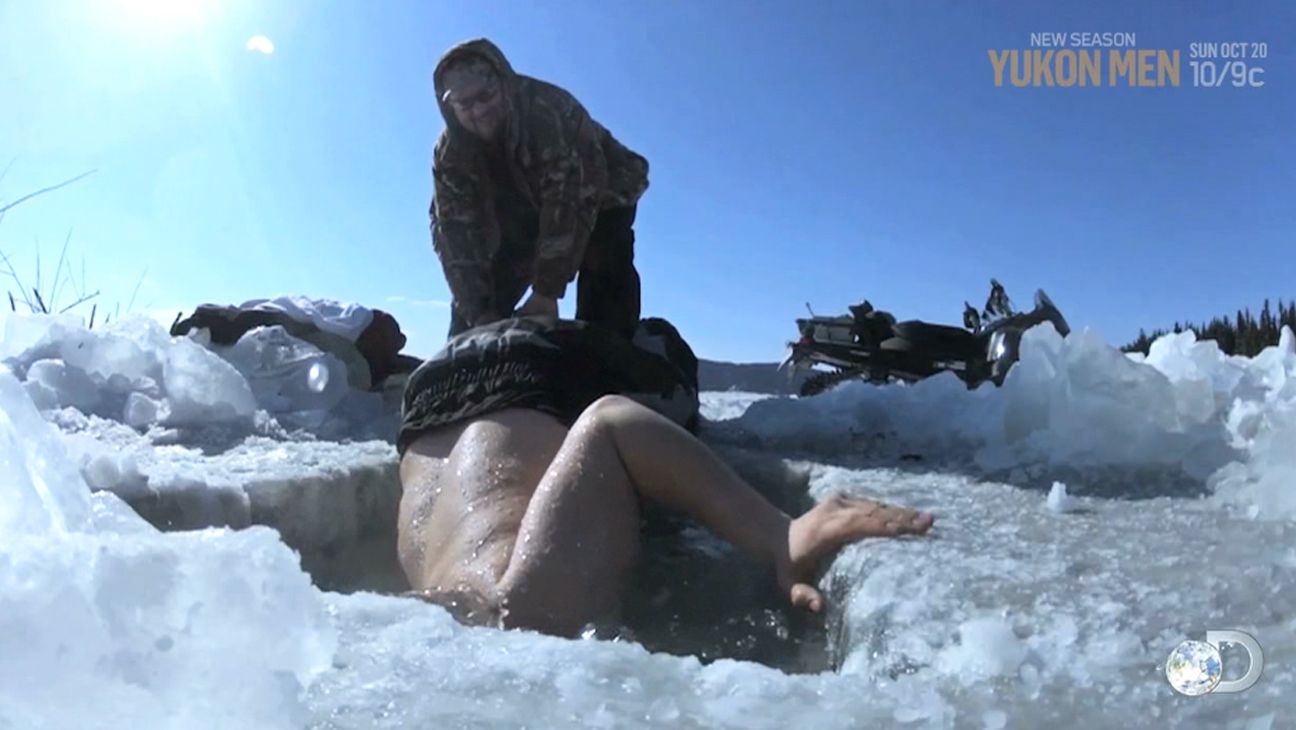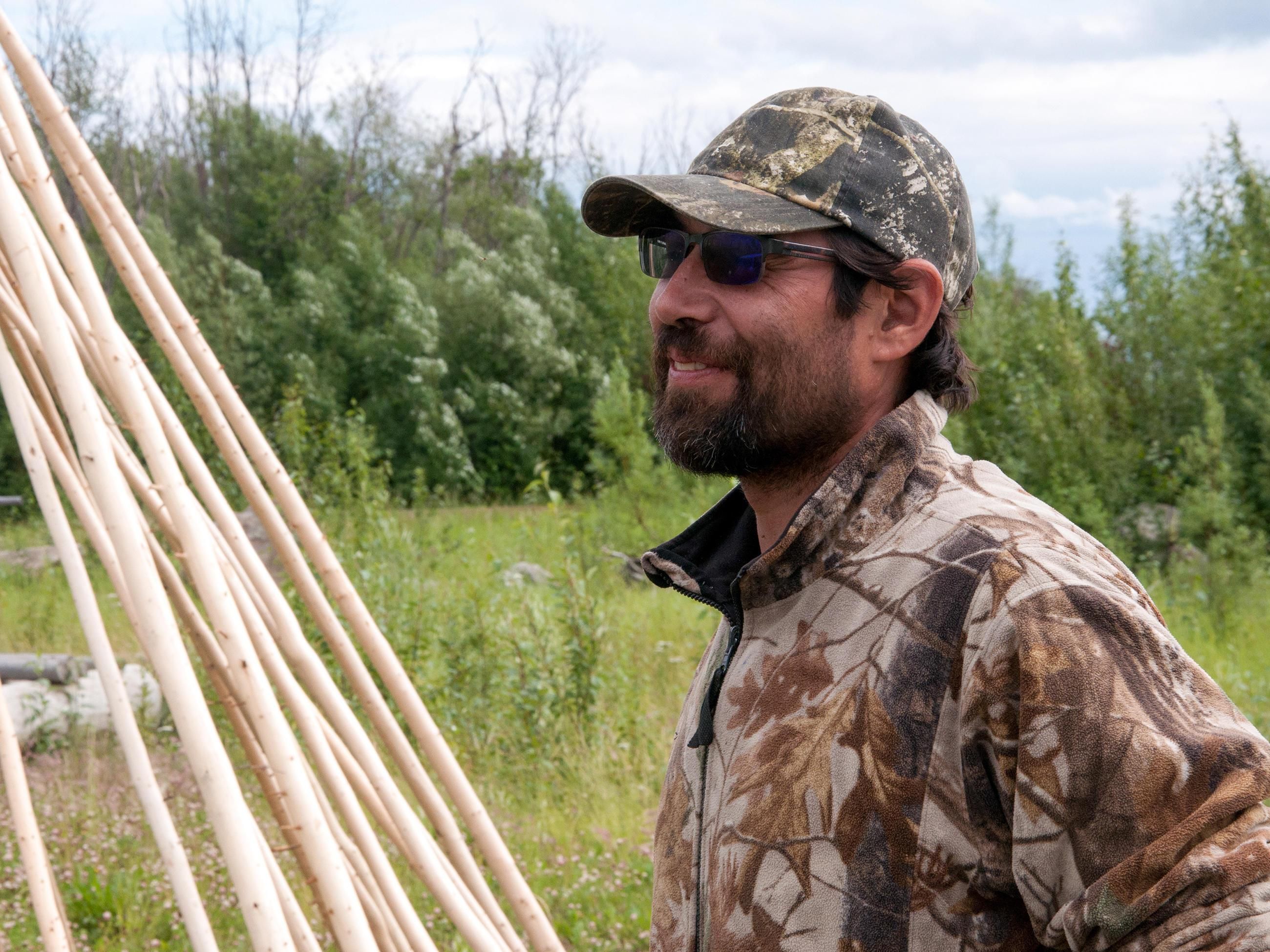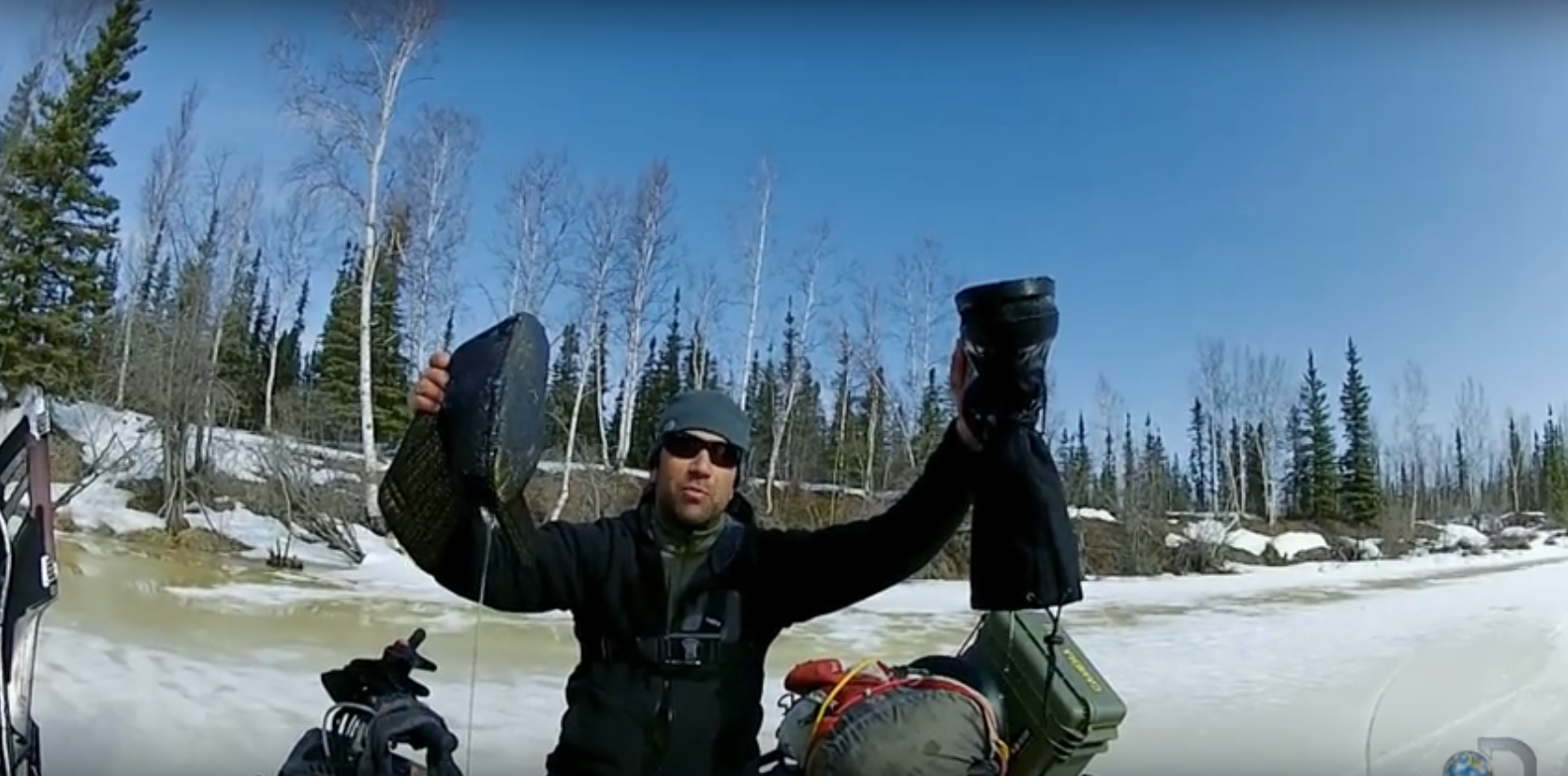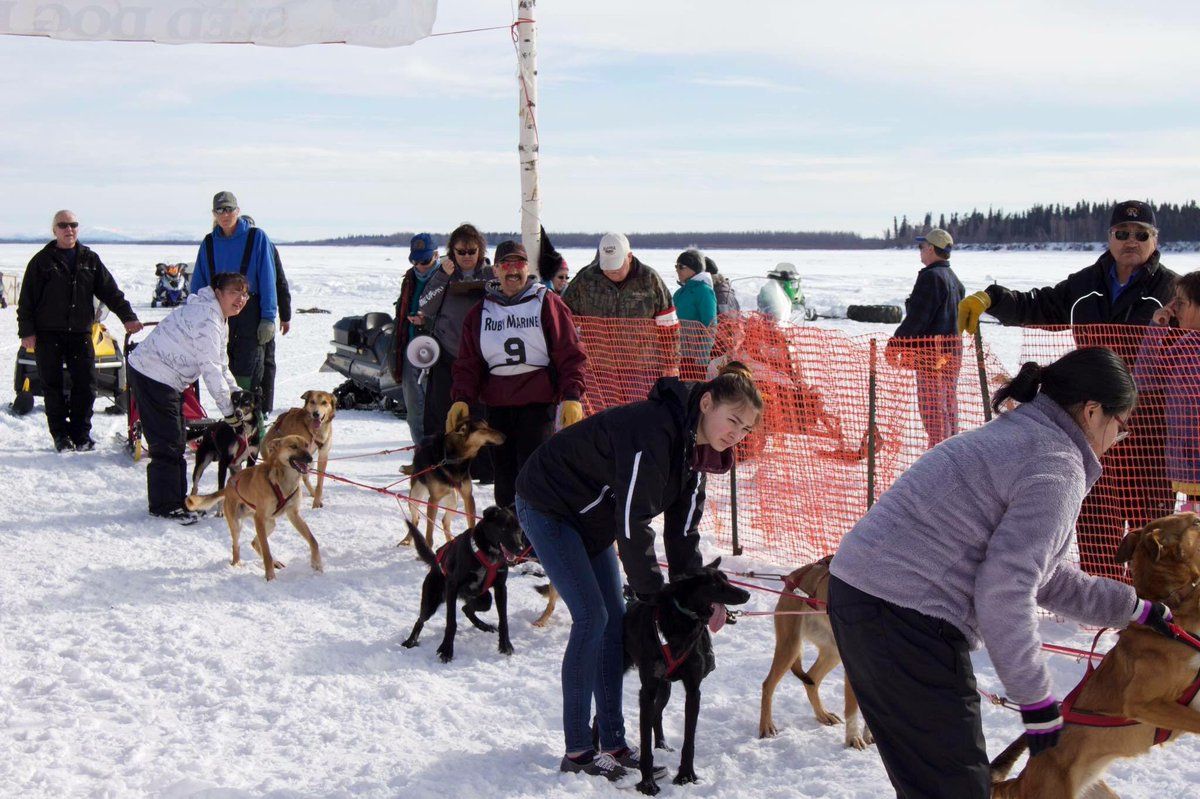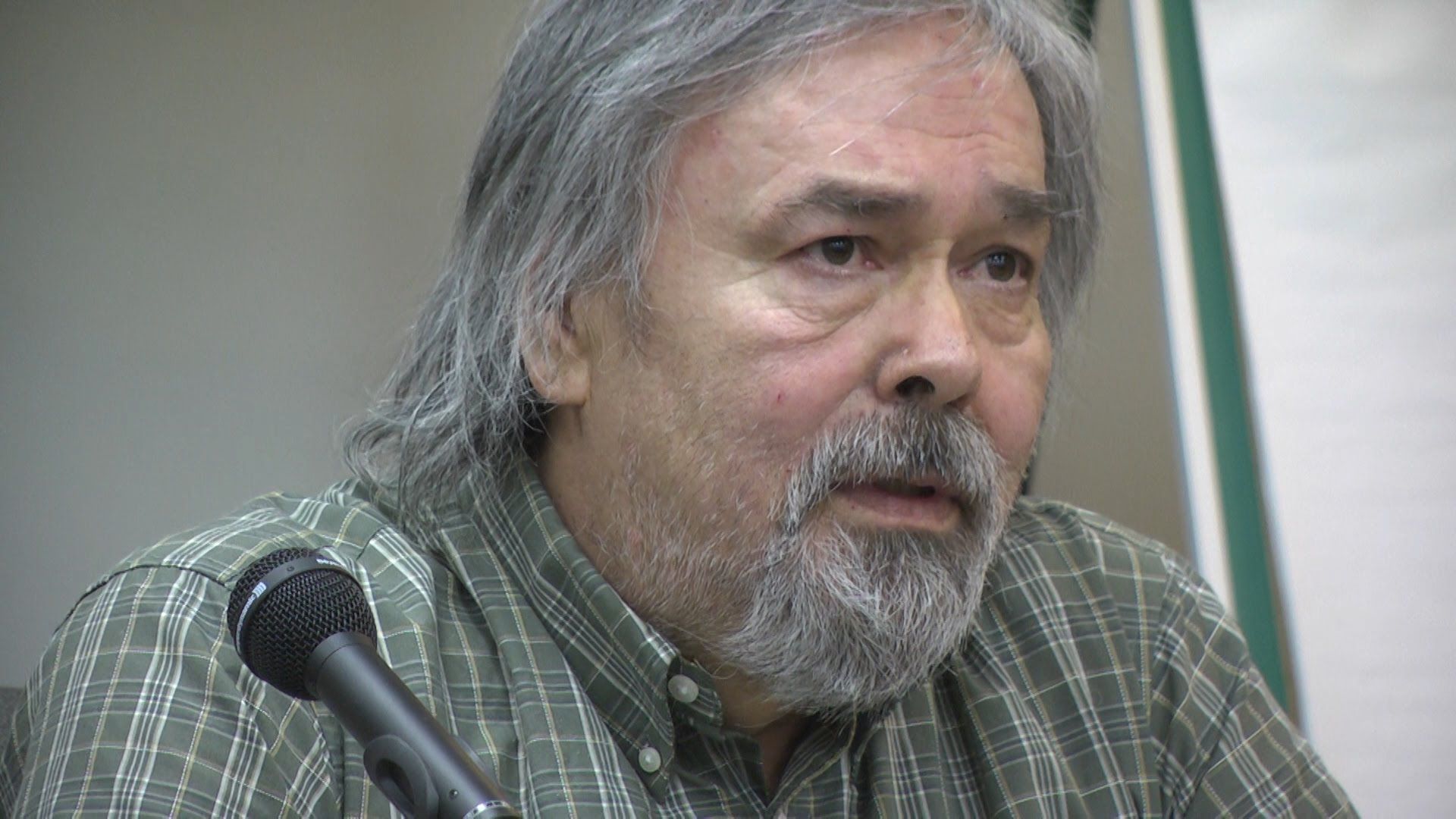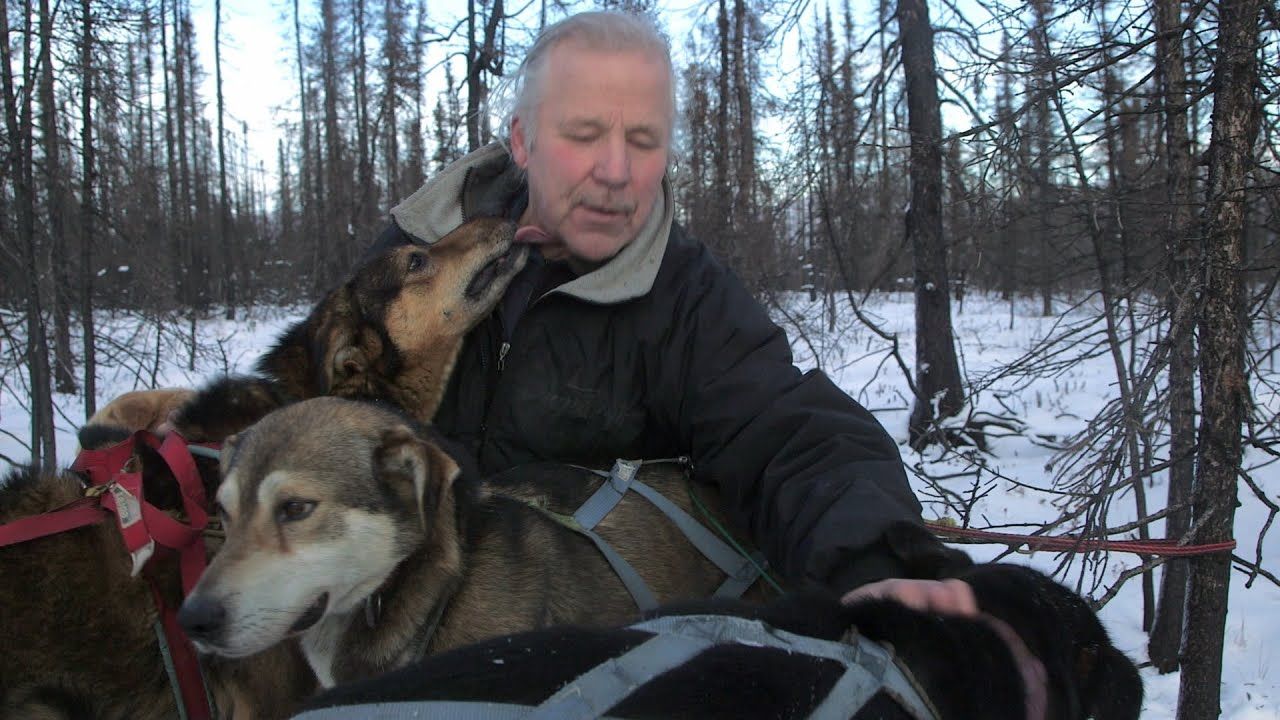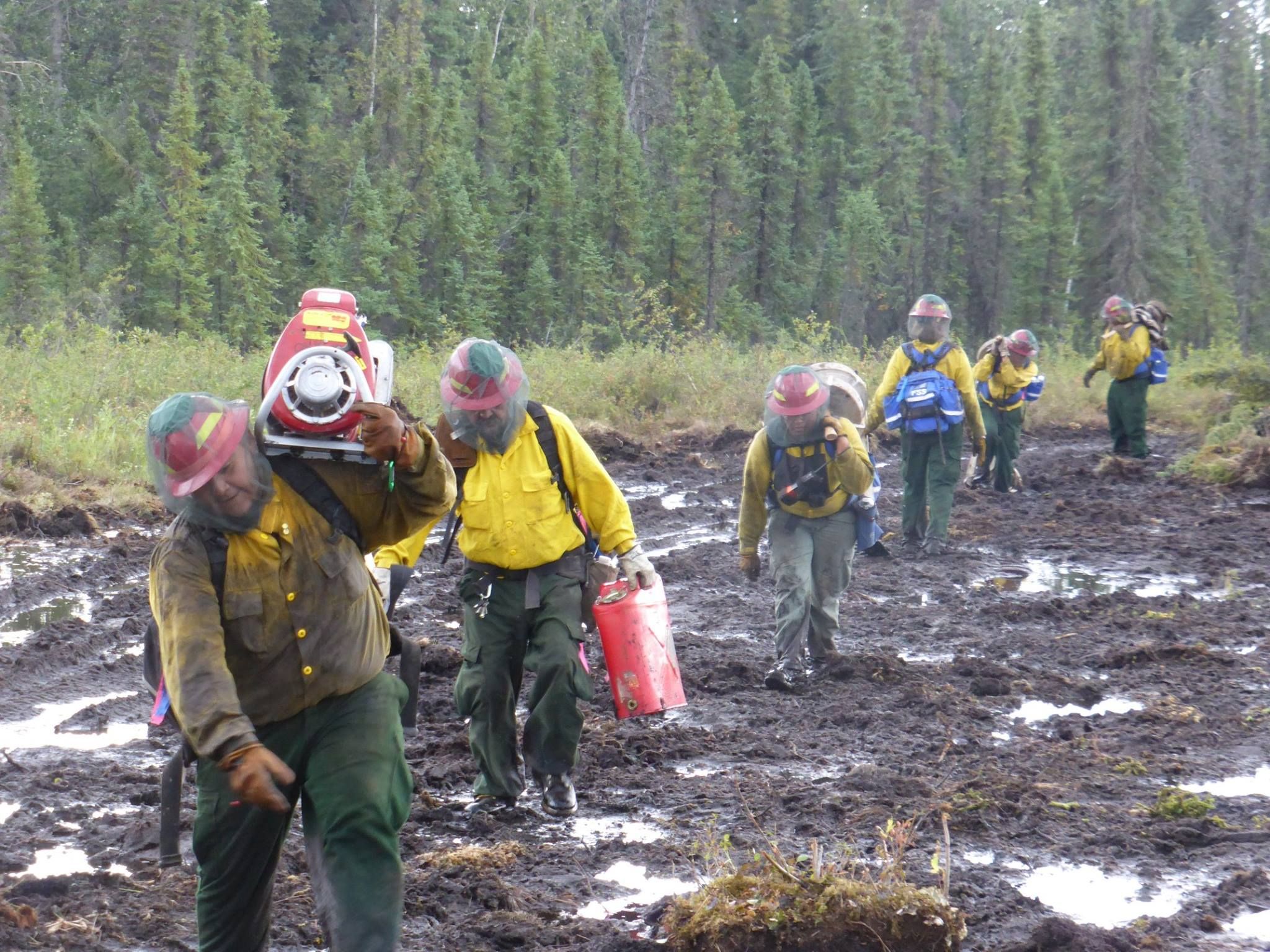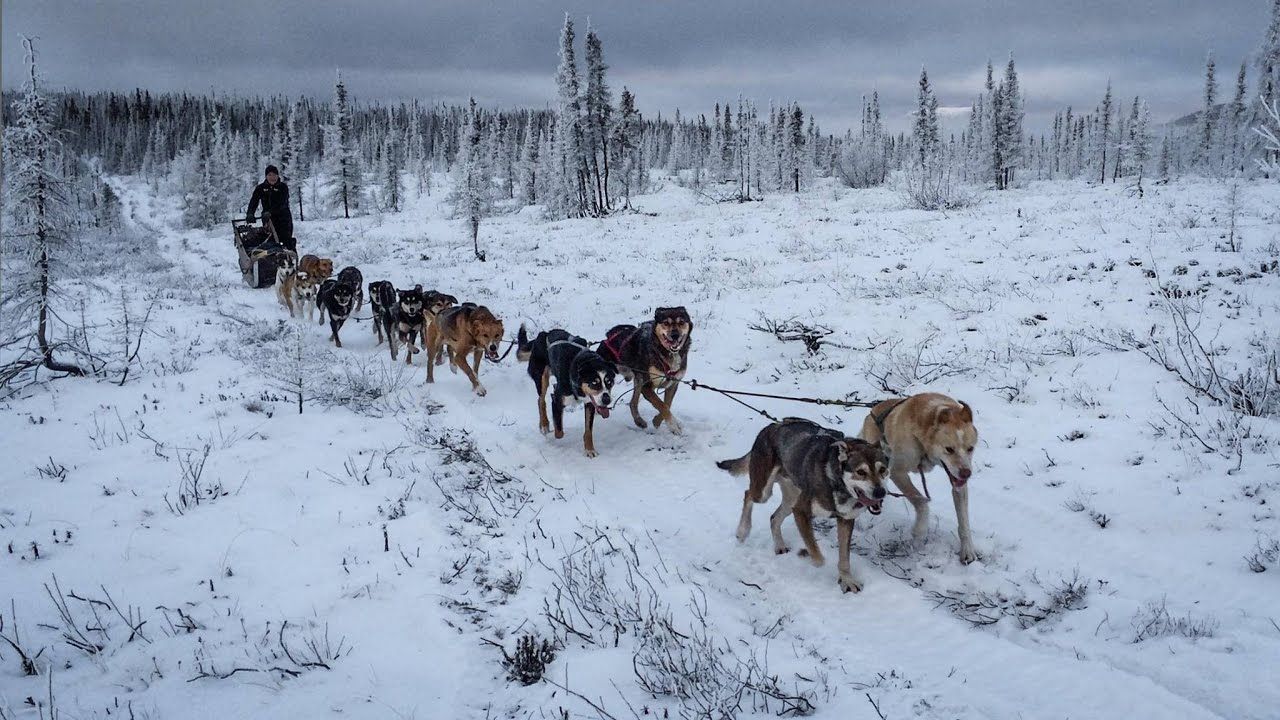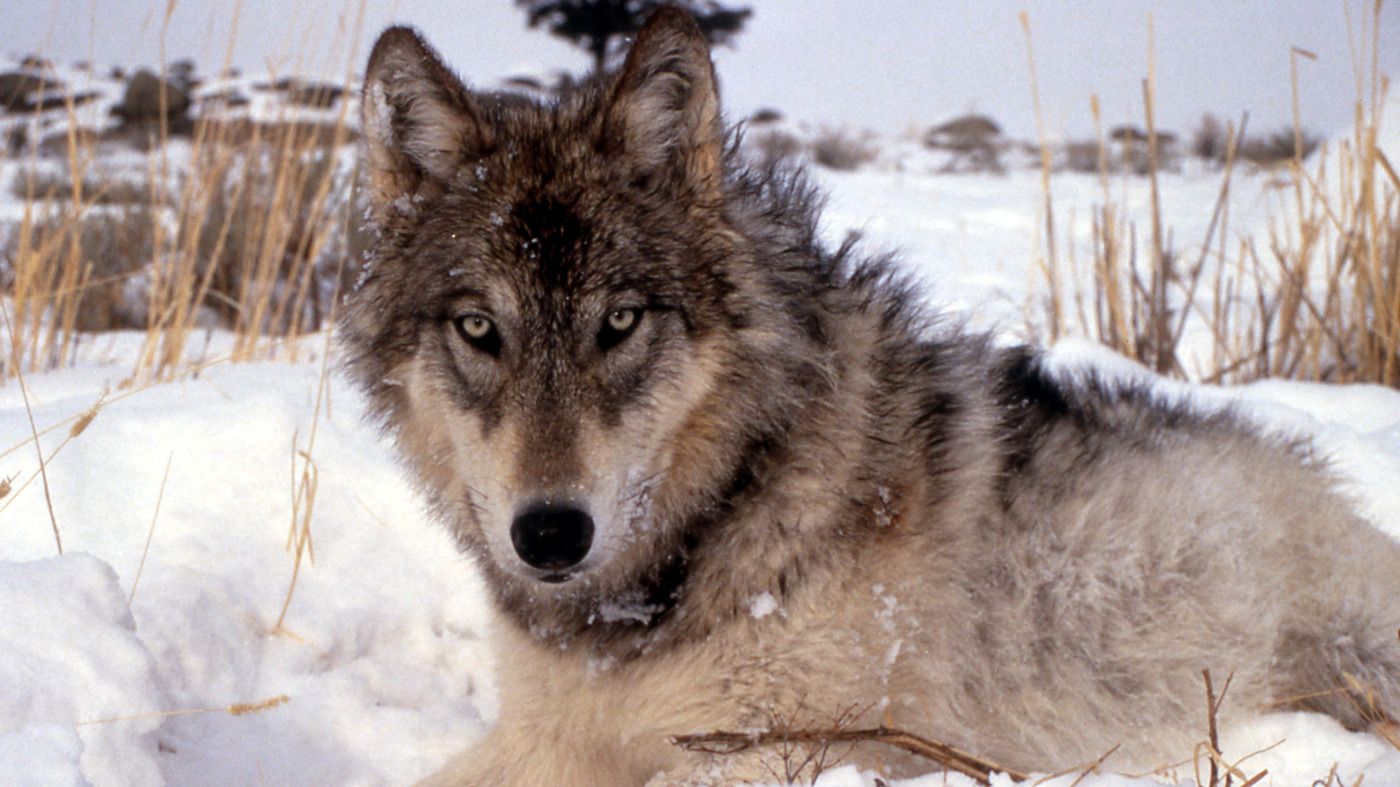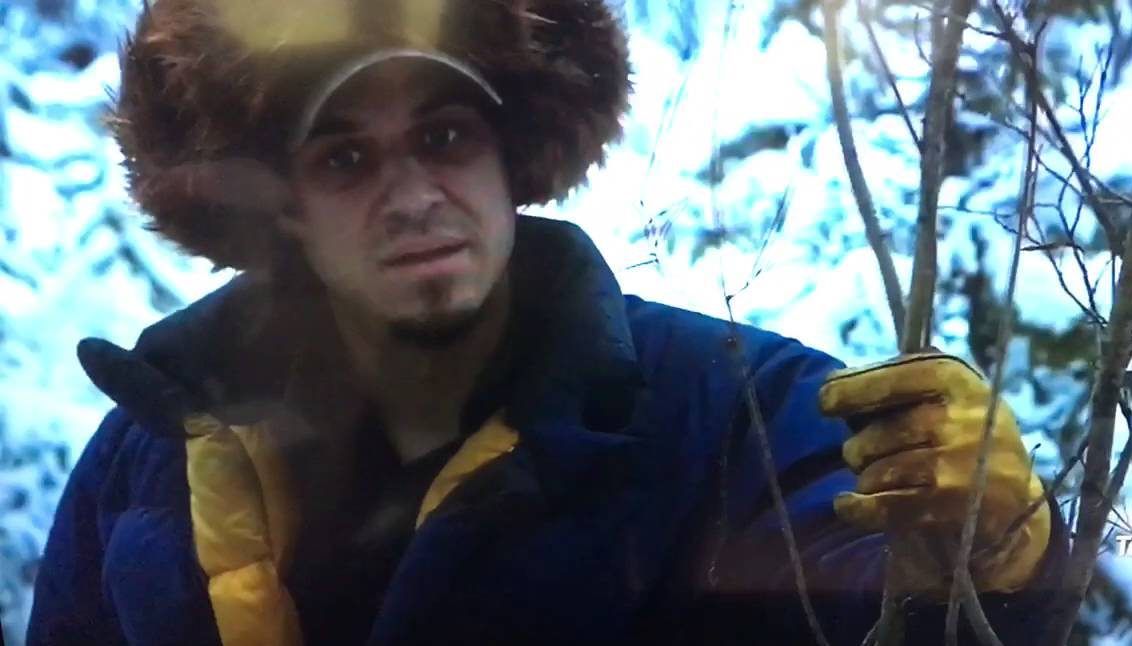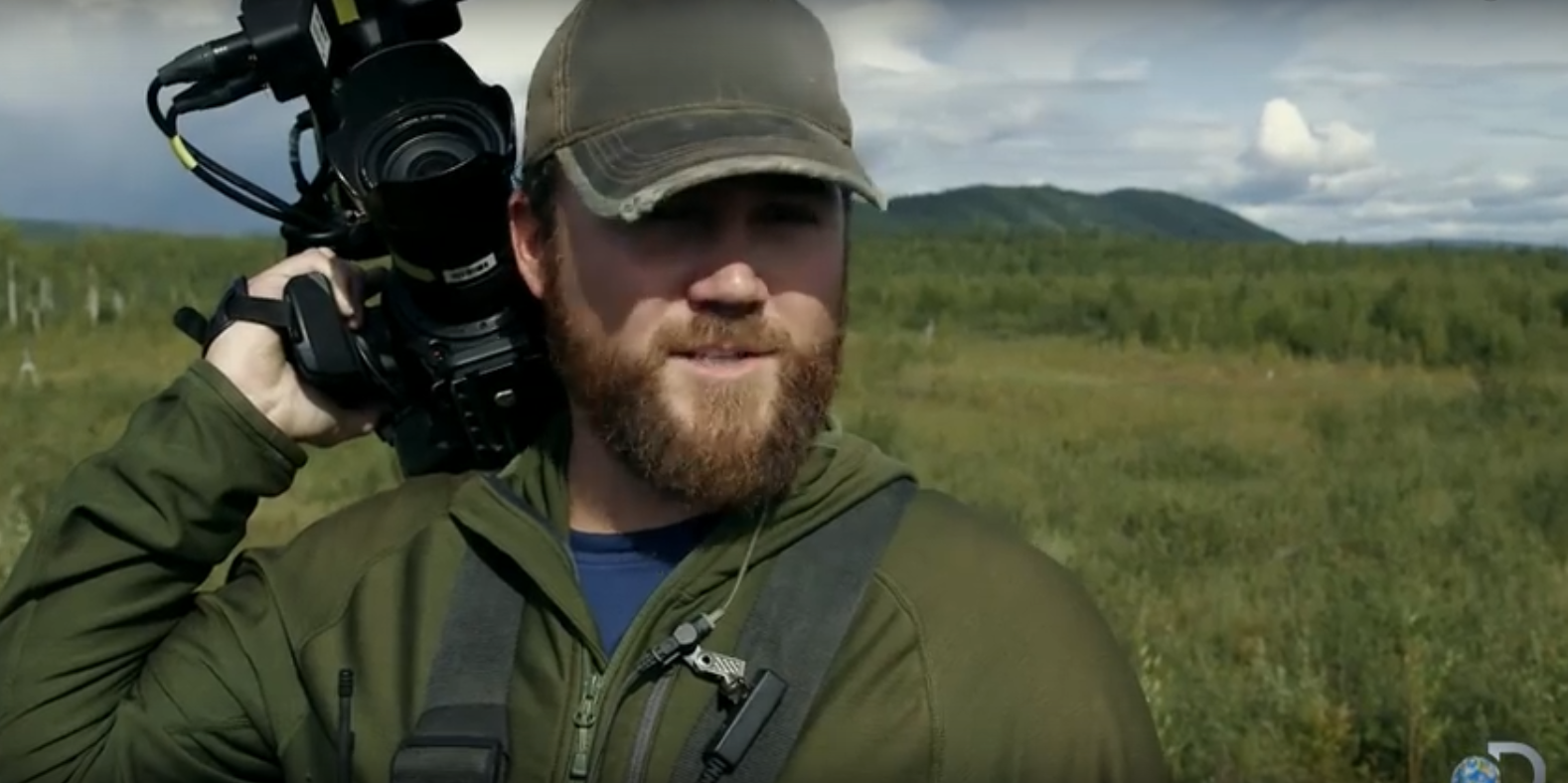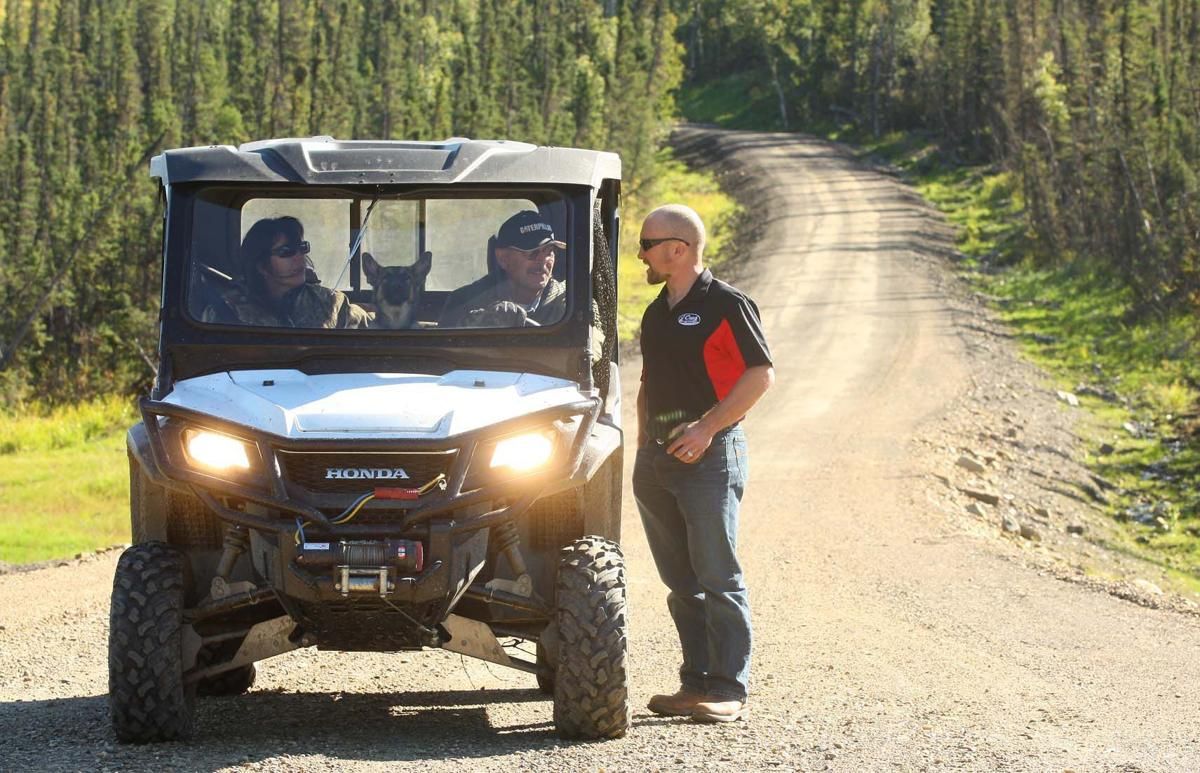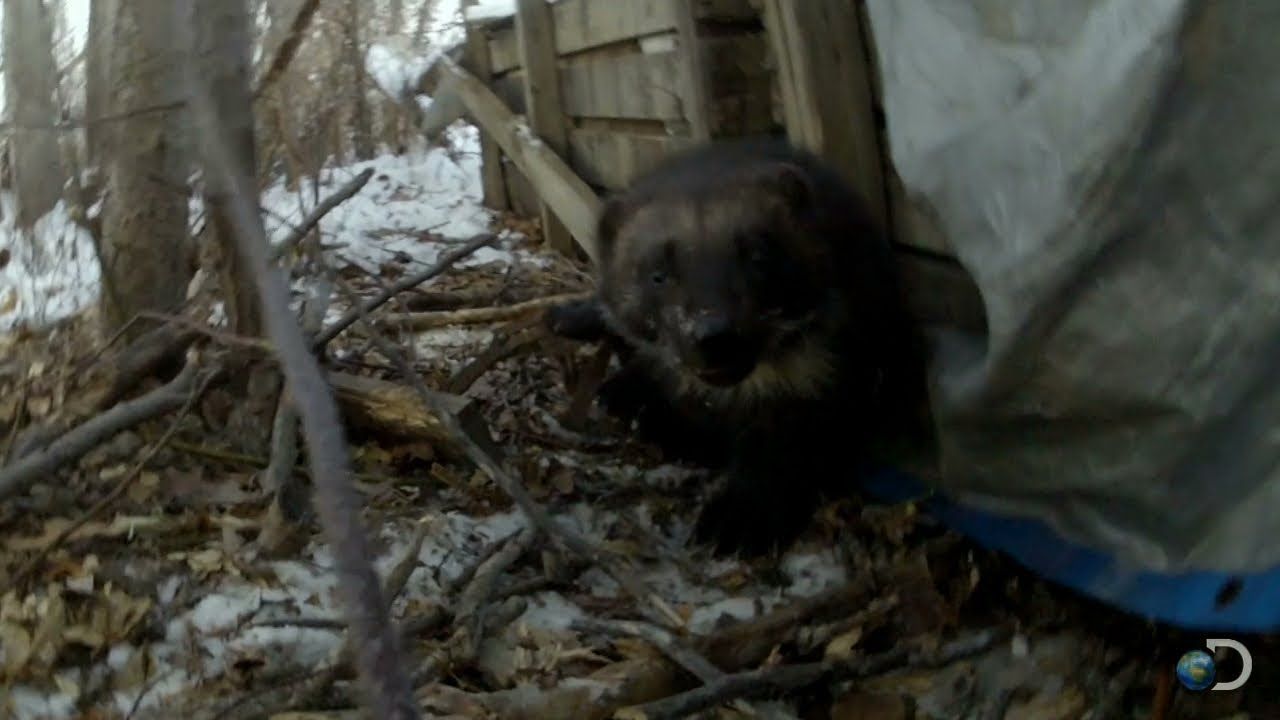Since it premiered on August 24th, 2012, Discovery Channel's Yukon Men has gained a large following of fans, who enjoy the show for its unscripted feel and its look at the lives of hunters and trappers in the wild north. Set in and around the Alaskan town of Tanana, a small village with about 300 residents, the name Yukon Men might seem misplaced. That being said, Tanana's location on the Yukon River might give you some insight into the choice.
The show follows a few specific hunters, trappers, and their families as they try to survive among the difficult conditions of the middle of nowhere. With few resources readily available, the men on the show must hunt and fish to survive and thrive. Each episode provides viewers with an closer look at the personal lives of these men -- we hear stories and watch as they try to overcome Mother Nature.
Fans aren't told everything. By scouring behind-the-scenes, we've found information that even the most voracious of fans might have missed. We'll reveal the information that is missing from many episodes and the secrets that the producers may not want viewers to know.
From untold dangers to the hidden and harsh realities of the show, here are 20 Secrets Behind Yukon Men.
20. Stan Zuray Fights
One of the stars of Yukon Men, Stan Zuray, has been living in the wilderness for more than 40 years. In that time, he's experienced many close calls -- times when he's almost been bested by nature. He's discussed some of this on the show and has even encountered a few close calls on air, but when he visited Reddit to hold an AMA, he delved into his most dangerous moments in more detail.
When a fan asked Zuray to talk about his scariest moment, the survivalist had two that came to mind.
He detailed an episode of Yukon Men, in which he nearly drowned in freezing water because his arms and legs were so cold he could barely move.
Luckily, the current had enough mojo to help him to shore.
The other, according to Zuray, was what he called, "the scariest short moment." He described how "A bear came up a tree to grab ahold of my leg and rip me out of the tree. I had gotten too close to a mother with two cubs. I could tell from their agitation that that was the case. I casually climbed up a tree, not expecting the bear to come after me. The momma decided differently. I got about 10 feet up and the bear charged at the tree and ripped me out of the tree."
19. The Real Yukon Men Challenge Discovery's Yukon Men
Picking the name Yukon Men for a show that takes place in Alaska is a bit confusing. As mentioned above, however, the men in the show hunt and fish along the Yukon River, which is where they stake a claim to the name. That didn't stop some members of the Legislative Assembly (MLAs) from issuing complaints to the network for the name. Some, like MLA Darius Elias, say the show's hunting and trapping methods are vastly different from Yukoners. In fact, many of the activities in the show are illegal in Canada.
"Yukon hunters and trappers consider this program's name as an outright case of identity theft," claimed Elias. "Yukoners have worked so hard to ensure our territory is recognized around the world as a beautiful land filled with wonderful people." Currie Dixon, Yukon's Environment Minister, agreed with Elias. "I have to say that I do agree with him that some of the portrayals of trapping in the television show in question and the presentation of that as being in the Yukon is unfortunate.”
Discovery Channel's president and general manager, Paul Lewis, acknowledged the differences, but insisted that the setting is made quite clear. "With regard to the hunting and trapping activities featured in the series," he said. "We understand and recognize that there are important legal and cultural differences on this issue between Canada and many other countries around the world… As a channel that brings international stories to Canadians, diverse perspectives are an important feature of our programming.”
18. Questionable Hunting Methods
One of the huge controversies surrounding Yukon Men is the type of hunting methods used on the show. An article on the topic from The Guardian called the show "bloodthirsty" because of their tactics. According to the piece, many of the weapons used on the show seem excessive, overly violent, and brutish.
One of the most common guns seen, for instance, is an AR-15, a semi-automatic assault rifle, in other cases, one of the hunters uses a small tree to "stun" a trapped animal, and then there's the particularly troubling scene in which a man uses a wire noose for hunting. From the outside looking in, the hunters methods seem inhumane.
It is these methods on Yukon Men that has given rise to most of the criticism of the show.
Viewer discretion disclaimers and numerous warnings aside, there is an argument to be made that some of these hunting tactics are more for shock value than practicality.
According to the Yukon MLAs, the extreme hunting methods are a big reason why they want the show to change its name. Darius Elias suggests that the barbarity of the hunters on Yukon Men is alien to true Yukon hunters. "The few citizens who still maintain traplines take pride in their responsible approach to harvesting their fur," he said.
17. Dramatic Renactments
While it's expected from almost every reality show nowadays, fans still get a little disappointed to hear that their favorite "real" show involves a some falsehoods. For Yukon Men, the fakery might not be as extreme as most shows, but not everything shown on screen is happening exactly as viewers see it.
On Stan Zuray's Reddit AMA, he said that most of the film work simply made disjointed lifestyles seem coherent and story-based. "All reality shows have to produce an understandable story for its audience," he said. "But all the animals are real, all the hunting is real, all the fishing is real. Everything you've seen has been done. Sometimes it just gets edited to make it understandable."
Now the key here is the phrase "has been done." This is because Yukon Men, like many reality shows, use dramatic reenactments. In an interview with the Anchorage Daily News, Zuray admitted to this small manipulation. "The shows are like ours. They dramatize them, but it's also reenactments of what they really do. The drama is absolutely needed to hold the audience who has a remote ready to click at the slightest lack of excitement but you can get a good idea of the day-to-day life of these people on these shows -- it's hard work and can be dangerous."
16. Being Judged In Tanana
One of the most common questions that fans ask the cast of Yukon Men is about how the townsfolk of Tanana view them. Knowing that some of the scenes add in more drama than necessary and how much attention the show brings to the trapping and hunting methods, do people in Tanana like the show?
According to Stan Zuray, most of the reception is quite good. "By far, most of the people love the show and support it," he said on his Reddit AMA.
"It brings in a little bit of an economy to the village so it helps everyone out too. Kids absolutely love the show too - they run around the town sometimes trying to act like they're Courtney [Agnes], or Charlie [Wright], or me. We're always getting ribbed about being movie stars, but it's always in good fun."
Not everyone in the town is exactly thrilled with the show and the representation of Tanana's hunters and trappers. In an interview with the Anchorage Daily News, Zuray explained that "There are a few who do not like the show, did not like it when it was an idea and do not like it now." While he doesn't get into the reasons for the divide, it's possible that, in trying to "let people not from Alaska see it for what it is and not all the misconceptions of us as poachers and cruel trappers," Zuray and the rest of the cast actually worsened those accusations.
15. Are These Really Subsistence Lifestyles?
The stars of Yukon Men all live what they call a "subsistence lifestyle." They work for enough food and money to keep them alive and well, but they also live without many of the comforts that most people enjoy. It seems very dramatic, but is it manufactured drama?
When Charlie Wright, one of the stars, is asked if he could live without a gun, he says, " No, not for very long; something would eat you. You could live in the middle of the town with no gun, but if you want to live a subsistence life, there’s no way you could survive.”
According to some viewers who live in the area, however, this claim is mostly fiction. "I live in Alaska 125 miles from Tanana on the Tanana river," one viewer wrote. "[I] know the store owner in Tanana so, when they are saying they only have a few days of food left, all they would have to do is walk down the street to get a cheese burger at the cafe store. There is an airport in town that has flights every day in and out with mail, food, cargo, fuel, and people. The town has cell service, internet service, satellite TV, electricity, and all the other things the rest of the world has."
14. In Memory Of Seth Fairbanks
During the season finale of season four, "Breaking Point", viewers met Seth Fairbanks, a pilot from the area. Sadly, at the end of the episode, a note popped up: "In Memory Of Seth Fairbanks, 1985-2015". When the episode avoided any details about Fairbanks' passing, fans were sent scrambling for information.
Stan Zuray then posted a statement:
“People have been asking about Seth the pilot in the last episode of the Yukon Men season last Tuesday. He was a good friend of Charlie and became a good friend of the cast and crew of the show and many in Tanana. The plan was for him to continue being in the show and we were all looking forward to it as he was such a great guy and very capable young man. This fall, 500 miles to the south near the city of Anchorage, he and another person passed away in a plane crash (they survived the crash, but rescuers were unable to reach them before the tide came in). May he rest in peace and his family take some comfort in knowing what a nice person he was to us here.”
Reports came out about his passing, stating that Fairbanks called 9-1-1 after his plane crashed.
He and his passenger were forced to stand on the plane's wing, as the tide quickly came in, and awaited rescuers. Tragically, the rescue efforts were too late.
13. Close Encounters Of The Cold Kind
In a setting like Tanana, Alaska, we expect there to be dangerous situations, but just how dangerous is it to film a show like Yukon Men? According to the cast and crew, there have been a number of close calls when making the show.
In a behind-the-scenes special on the Discovery Channel website, Stan Zuray relates an occasion when his sled flipped over and he got stuck upside-down in a dangerous spot on a frozen channel. Thinking he needed help, a cameraman bravely ran over to his aid, but he then fell through the ice. Zuray said, "He was in a heck of lot more danger of falling into that channel and getting swept away than I did."
In another interview on the Russell Scott Show, Zuray spoke about the dangers of extreme weather in Tanana. He discussed how even taking off protective clothing in deep freeze temperatures can be dangerous. He also noted that in Tanana, the coldest temperature he ever experienced was -76 degrees.
Incredibly, the coldest temperature ever recorded in Alaska is -80. That came from Prospect Creek, which is about 150 miles north of Tanana. While that recording is from 1971, temperatures in Alaska lately are alarming.
12. Camera Crew and Cast Are Great Friends
When Yukon Men first started filming, before it became a hit show, the many of the townsfolk in Tanana were unsure about how it would all work out. After all, this is a town with around 300 people living in it. Everyone knows each other and outsiders might find that intimidating.
Over the years, the crew that work on the show have been welcomed into Tanana with open arms.
When speaking about how easily the camera crew integrated with the Tanana people, Stan Zuray said, "That is hard to do in this place or any place, actually. The camera crew actually lives with us in the village and are real friends with many of the people." The other cast members feel the same way. Pat Moore said, "The guys have been able to adapt into the community." Wright said that "they kind of feel like part of the family now, even the dogs are used to them now."
James Roberts takes it a step further. "I started naming my dogs after cameramen," he laughed. "I got a Reno, a Scotty, a Yoshi. I had two Tims, and I think that's it. Oh! Mitch. Because he was the meanest dog I had, and I named him after the nicest camera crewmember ever."
11. Camera Crew's Cabin Catching Fire
Several of the camera crew on the set of Yukon Men have done other shows on the network, but few experienced dangers like the ones they encountered on the set of the Alaskan show. One cameraman, who participated in a Reddit AMA, was asked about his scariest moment on the set.
His answer? "Coming very, very close to burning... while asleep," he said. "Another cameraman and myself were staying at Stan's [Zuray] fish camp in one of his cabins. It was the summer so the mosquitos were terrible...like carry you away terrible. We didn't end up putting the mosquito pick completely out before bed -- like we thought we did. It smoldered under the cabin for a few hours and we awoke to the crackle of fire and a 5-foot flame in the doorway of the cabin. Our cabin was on fire!! The only way out was to jump into/over the flame. It was scary."
Now, if jumping through flames doesn't light your, uh, fire, this cameraman and another crewmember were chastised by Stan when one of them fell off a fishway into the river. He scolded the crewmember, "When you walk on a fishway, you walk like an old man."
10. Stan Zuray In The Iditarod
One of Stan Zuray's most incredible stories tells of a day in 1982. Like every other day, Zuray worked his traplines in the woods, but opportunity was about to pounce on him.
“In those years I was just a trapper with a very limited amount of worn-out dogs out on the trapline, barely keeping them alive and feeding them," he said. "I was out on the trapline when a plane landed close to me and it was a friend of mine. He lived about 40 miles away and his wife had landed and said, "Get into town sometime and talk to my husband. He wants to sponsor you in the Iditarod race,""
That's how it began, but though Zuray's dogs weren't trained to race, they were trained to work. Those working dogs ended up bringing Zuray all the way to the front of the pack at one point. "The dogs that I had were so tough," he said. "And I guess it was the bush skills that I had were so hardened that I was able to get in the race and figure it out."
By the end of the 16-day grueling race, Zuray finished 9th and won Rookie of the Year.
In fact, Zuray's top-ten finish is a record that stood for a decade until another Rookie tied his ninth-place finish. "It was a humble and meager start," Zuray recalled. "But we ended up doing really fantastic and was one of the coolest things I’ve ever done in my life."
9. Big Crime In A Small Town
Though an episode of Yukon Men touched on the tragedy, the details of the incident of two state troopers in the small town of Tanana, Alaska were largely avoided. The story, however, is interesting.
According to reports, it started when a public safety officer questioned Arvin Kangas for driving without a license. Kangas allegedly pointed a gun at the man. The following day, two state troopers, Sergeant Scott Johnson and Trooper Gabe Rich, two stars of Discovery's Alaska State Troopers, flew into Tanana. When the reached Kangas' home to arrest Kangas, a struggle broke out. During the scuffle, Kangas' son, Nathanial "Satch" Kangas, shot and ended both troopers' lives.
Now, while both Kangas men were sentenced to prison time through the legal system, the village of Tanana ensured that Arvin Kangas would not return. Equipped with local law enforcement since the event, some villages in the Alaska area resort to tribal court to dole out punishment.
For his actions and for manipulating his son, Satch, the village elders banished Arvin from Tanana for life. "Tribal councils always have attempted to protect the peace," said Heather Kendall-Miller, an attorney for the Native American Rights Fund in Anchorage. "It seems to me like a reasonable approach to avoid violent situations, especially when you have no law enforcement providers within a community. Try to pre-empt a bad situation before it happens."
8. Stan Zuray's Old Dogs
Now, Stan Zuray understands well that his way of life is not always understood or even agreed with by the average person. It's an alien lifestyle to many people.
Perhaps more than any other aspect of Zuray's lifestyle, his relationship with his dogs is one of the most jarring. In his Reddit AMA, Zuray spoke of his dogs as workers and not pets. "They're all for running," he said. "I realize that I don't have the emotional attachment to the individual dogs that somebody has with a single pet. But in some ways, as far as knowing my dogs and being in tune with them, I bet I have a closer relationship with them than most people would have with a pet."
In his interview on The Russell Scott Show, Zuray got into some of the more challenging details of his dogs' lives, such as when it's time for them to move on.
Zuray described using old dog fur to make mittens and clothes, or even dog food for his living dogs -- a difficult concept for people to grasp.
"With me it's a matter of respect," Zuray said. "I would go out of my way, even I didn't need the fur that moment, if I had a dog that had given me its life, pulling hard for me and being loyal all its life, that dog would be specially used. I would try to use that dog for something special, make sure its life went back into the team."
7. The Great Wildfires
In the wilderness of Alaska, there's more than the cold, the water, and the animals to be wary of. Wildfires are a major danger. Large burns devastate the food chain for trappers and hunters. In 2017, the entire town of Tanana was nearly destroyed as wildfires burned through Alaska. According to Discovery Channel reports, "Half a million acres of prized hunting and trapping land were incinerated."
Wildfires threaten the lives of the animals in the woods, but they also move their territory. Long-standing trapline territories and traditional hunting grounds were gutted, forcing the Yukon Men to travel further and work even harder. While the detection systems in Alaska are improving rapidly, the causes of these fires are not always known. They are unlikely to be human-caused, which is the first thought for most people.
According to the Huffington Post, "The majority of fires in the North are started by lightning – not humans, as is the case in the lower 48 states. In the hot summer months, it’s not unheard of for more than 2,000 lightning strikes to hit Alaska’s lowlands in a single day." Sadly, these fires are becoming more common and more severe as global warming heats Alaska up at twice the global rate.
6. Dangerous Home Remedies
On Yukon Men, and other shows like it, the stars often show off their ingenuity and ability to use what they have to accomplish tasks. Without everyday materials and resources readily available to them, they are forced to make do and find alternative methods. Sometimes, the men's creations and alternatives are remarkable and quite effective. Other times, however, the results can be shockingly dangerous.
In one episode, the Yukon Men discussed methods for treating Parvo virus, a dangerous and contagious viral disease affecting dogs. Without proper and accessible veterinarian care, the trappers drew up their own cures. The answer?
They put bleach into the dog's water and had them drink it, which is apparently quite common in the wilderness.
According to Dr. Sara Smith, a veterinarian at Delphos Animal Hospital, "Chlorine bleach is NOT a Parvo treatment or prevention, and it may cause great harm... to a dog or puppy. True, bleach deals with Parvo virus on surfaces, but those surfaces must be cleaned before the bleach is used. Contact with organic material (i.e. a puddle of feces, or a bowl of dog food) makes the bleach less active. Bleach is a strong base and is very caustic to mucous membranes in the mouth, esophagus, and stomach."
5. Wolves Not Nearly As Dangerous As Yukon Men Suggest
One of the common criticisms for Yukon Men (and really any similar reality show) is the overly dramatic picture being painted of constant danger. While these men certainly face great danger in the wilderness, not every situation is life threatening.
Take the depiction of wolves, for instance. In one episode of Yukon Men, the narrator explains, "But that's not the only crisis. Wolves have been spotted on the edge of town." Then, one of the stars, Charlie Wright, says, "Wolves are mean, ferocious animals and they can tear a man apart real easy. … We have to get this wolf, it's not an if, its a must, because he'll go to any measure to eat. They're the worst kind."
Are they really as bad as the show makes it seem? To hear it from the narrator of Yukon Men, "There have been twenty fatal wolf attacks in the last ten years." Yet, research conducted by Adam Welz of The Guardian disputes that number. In fact, his numbers are drastically different. "Even though the US and Canada hold over 60,000 wolves," Welz reports. "I found only two records of fatal attacks by wild wolves in these countries in last ten years."
4. Hibernating Bear Hunting
While many of the hunting methods and strategies featured on Yukon Men are concerning for critics of the show, one of the most alarming sights for viewers is the bear den hunting.
For the uninitiated, bear den hunting is the practice of hunting bears while they hibernate.
According to Stan Zuray, "Bear den hunting is a traditional thing going way back prior to contact. The state recognizes it as such and law allows it some places. Common when I first came to Tanana 40 years ago." While Zuray is correct about the legality in some places, that actually changed quite recently.
Last year, President Donald Trump made this practice legal across the entire state of Alaska, so now all hunters, even those who aren't subsistence hunters, are allowed to take part. For animal rights activists and animal lovers, den hunting is a horrifying prospect.
Many rally against as it seems very unfair for the animal. Zuray, however, doesn't seem to worry about balancing the playing field. "We usually don’t care about den hunting or any hunting being sporting or "fair," he said. "We are after the meat and fur, period – not the chase. It may be because we are ignorant or something."
3. The Camera Men Are World Class
Simply watching a single episode of Yukon Men is enough to highlight the extreme conditions that these people live with every day, but when making a show like this, it's not only the cast that have to survive -- it's the crew as well. "You got to be a certain breed to survive out here, to tag along with me and keep up," says "Yukon man" Charlie Wright.
These camera guys are experienced in this life. In addition to working on many similar shows, the team that works on Yukon Men spend much of their lives in the outdoors.
"The camera guys that make it our here, they're world class outdoorsmen," says Stan Zuray. When discussing the qualifications of the camera team he works with, Zuray also added, "We do not have much contact with Discovery Channel people. The show is filmed by a smaller production company from NY and ... many of the camera men are nothing short of what I call world class outdoorsmen. One example that is easy to use is the guy that traveled with me for the first couple of years - he had been to the top of Mt Everest twice and done it since I last worked with him also. Been a good experience."
2. The Struggle Against The Outside World
One of the recent storylines on Yukon Men, is the threat of a new road being built that bring the outside world into the remote Tanana wilderness.
The road off the highway will allow for cheaper supplies to be imported and exported, but the threat to the wilderness and nature's resources worry the people of Tanana.
“There are a lot of people in the village who do the trapping, hunting and fishing lifestyles, and others who don’t do it as much. But the ones who do, they’re the ones who are going to be impacted by people coming in and taking over fishing spots and traplines,” said Stan Zuray. “There are other people who just want to use their trucks and go to town and aren’t as concerned about it.”
Yet, while Zuray, the unofficial star of Yukon Men, worries for the people of Tanana, the road won't stop him from living the way he has for the last 40 years. "I came to the Tanana area specifically because there was no road to it," he said. "I feel it is more up to the young people in town and those who were born here to decide the issue, so I voice no opinions at meetings, etc. I spent my life running from the city or better put running towards God's country and I'm good at it and will continue to do that."
1. Wolverines Are Nicer Than They Seem
Of all the animals on the show, one of the most frequently discussed is the wolverine. Perhaps because this animal is not well-known and is misunderstood, Yukon Men provides a lot of information about it. According to The Guardian's Adam Welz, however, the information the show provides appears wildly incorrect.
In the show, Stan Zuray tells the camera, "He's really dangerous", he says of the wolverine. "I don't think any human being could keep an attacking wolverine from [ending] them."
How accurate is that information? Welz looked into it. "I searched the web and could not find a single documented case of a wolverine even attacking a person anywhere in the world, ever," he writes. Welz then claims that he contacted Jeff Copeland from the Wolverine Foundation to get more information. When he asked Copeland about how dangerous wolverines really are to humans, Copeland responded that he is "not aware of any instance in which a wolverine has [ended] a human, or even attempted to do so."
Now, it is possible that the wolverines in Tanana are more vicious than other areas, but the evidence seems to suggest that they are not as threatening as Yukon Men makes them seem.
---
Did we miss any secrets from Yukon Men you know about? Tell us in the comments!

